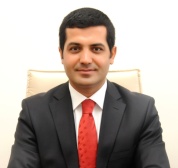Turkey’s General Election in June 2015 did not secure the majority that President Erdogan needed to realise his dream of transforming the country’s political system from a parliamentary to a presidential republic. In the aftermath of the election, all sensitive attempts by Turkey’s political parties to form a coalition or minority government failed. Therefore, the country faces yet another election, which will be held on 1st November. In the meantime, the long established cease-fire between the government and the outlawed PKK (Kurdistan Workers’ Party) has collapsed and renewed fighting has broken out. Nobody knows what will happen in the upcoming election and what approach the country will take to handling the conflict.
And what might all this mean for local government in Turkey? A round of interviews recently conducted with District Governors across the country has highlighted a range of challenges now confronting local level governance and public provision. But before introducing these, it will probably be helpful to have an overview of local governance structures and public administrative arrangements in Turkey.
The local Turkish public administrative system comprises two distinct systems, one being the locally elected local/municipal authorities; the other being the governance of the central state within the localities – the latter comprising appointed governors operating at the provincial and district levels. The duties of local authorities mainly revolve around infrastructure provision and maintenance within local areas, including services such as road development, construction zoning, water facilitation and the like. In contrast, the central state, through the district governors, is responsible for a number of other key public services, including policing, education, agriculture etc.
In the past decade, local authorities in Turkey have experienced significant devolution of power from central government, with the result that much more day-to-day business concerning local communities as well as responsibility for strategic planning at the local level is now exercised by the local authorities and municipalities. Such devolution has also involved the abolition of the special city administrations that had previously been headed by the provincial governors and the transfer of responsibility for infrastructure development in the villages and towns from the governors to the local authorities.
In light of such a significant programme of devolution, it was interesting to have the opportunity recently to learn from a sample of District Governors from across Turkey how the reform process was working out in practice and of the benefits and challenges that it was perceived to be creating.
As part of the author’s doctoral research, a total of 30 district governors were interviewed during summer 2015. Of these, a few viewed the developments as potentially good for Turkey’s future in general albeit expressing some concerns about the implications for their own role as governors – i.e. in relation to their responsibilities for coordinating and leading the local branches of the central state’s administrative system. However, the majority of interviewees expressed a more pessimistic perspective and saw the change as the beginning of the end of the governor profession within the country. They highlighted, that the central administration, based in the capital city of Ankara, had transferred aspects of the governors’ authority and power to the local municipalities in lieu of devolving power or authority from the central government.
An intriguing question to be asked in relation to this otherwise bold devolution is why the shift of power stopped short of abolishing the governorships and the centre-appointed governors? And the answer would seem to lie mainly in two political concerns of the Turkish government at national level. First, there is the ‘Kurdish question’ – one of the most important issues that the Republic of Turkey has been facing for decades. The country has been quelling dissent from Kurdish rebels, particularly in its south-eastern and eastern parts, for some considerable time and the fear is that if the governorships were to be abolished, the Kurdish towns and cities would most likely want to claim autonomy from the Turkish state. Given that the governors act on behalf of the central government, they are seen as representing the state and symbolising national unity, which sends an important message within the context of the ‘Kurdish question’.
Second, the commitment to devolution is arguably less than whole- hearted within the central bureaucracy with Turkey having had a long tradition of a centrally structured state. Devolving power downwards to local administrations requires Turkey to break from that tradition, which will neither be an easy nor a quick process.
Given such circumstances, the future for devolution in this country remains somewhat uncertain, with the district governors unsure of the prospects and as a result often reluctant to exert their authority and leadership potential at a time when the spirit of localism grows ever stronger as does the people’s demand for enhanced democracy. One suggestion discussed in the interviews with several governors was for the establishment of a new form of democratically-elected governorships. Might this be a realistic way forward for Turkey in these challenging times?
Saban Akca is a doctoral researcher in INLOGOV at the University of Birmingham. His research focuses on leadership in public administration, and his doctoral thesis examines the leadership performance of local-level district governors in Turkey.

Interesting article about the evolving role of elected local authorities and devolution in Turkey. which seems, despite the challenges outlined, quite progressive. My own research in post-conflict Tunisia suggests the same debate taking place about the roles of elected local government and central government appointed governors and officials.